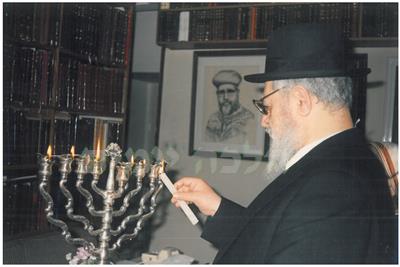











Steve Delgado Porter has traced his Delgado ancestry from Jamaica back to Portugal. He shares the family history, and the sources used. The family includes famous poets such as João Pinto Delgado, rabbis such as Haham Moses Cohen D'Azervedo, and men of business. As well as Portugal and Jamaica, there are family links to Hamburg, Amsterdam and London.
Jamaica has become a major focus in Sephardic genealogy. Steve is author of Jamaican Records: A Two Part Guide to Genealogical and Historical Research Using Repositories in Jamaica and England.
Time: Sunday Dec 13, 2020. 2pm NYC, 7pm London, 8pm Amsterdam/Paris, 9pm Jerusalem.
Join Zoom Meeting
https://us02web.zoom.us/j/82545628251
A small monthly donation on Patreon helps us a lot. Many thanks to everyone who already supports our work. https://www.patreon.com/sephardi
If you can't get into the Zoom meeting, there is an overflow on YouTube at: https://www.youtube.com/c/SephardicGenealogyAndHistory Please subscribe to the YouTube channel, where past talks will be shared.
Best wishes,
Ton Tielen and David Mendoza
Sephardic World


לוח זמני תפלה לחורף תשפ״א
מוצאי שבת | ערבית | שקיעה | מנחה שבת | סוף זמן קריאת שמע | הדלקת נרות | מנחה וקבלת שבת | תאריך | שבת פרשת |
Shabbat Ends | Arbit | Sunset | Minha | Shema before | Candle Lighting | Minha & Kabbalat Shabbat | Date | Parasha |
PM | PM | PM | PM | AM | PM | PM |
|
|
4:48 | 4:45 | 3:48 | 3:15 | 10:09 | 3:34 | 3:34 | 11/12 Dec | וישב (ש''מ) (חנוכה) |
Q & A on Parashat Vayeshev
- “These are the offspring of Yaakov: Yosef….” Give three reasons why Yosef is considered Yaakov’s main offspring.
37:2 – (a) Yosef was the son of Rachel, Yaakov’s primary wife. (b) Yosef looked like Yaakov. (c) All that befell Yaakov befell Yosef. - What was praiseworthy about the fact that Yosef’s brothers did not speak to him in a friendly manner?
37:4 – They did not act hypocritically. - How do we see from Yosef’s dream about the sun, moon and stars that all dreams contain some untrue element?
37:10 – The moon represented Rachel. Since she had already died, it was impossible for that element of the dream to come true. - Who brought Yosef down to Egypt?
37:28 – A caravan of Midianites. - Where was Reuven when Yosef was sold?
37:29 – He was attending to Yaakov. - In addition to the brothers, who else knew that Yosef was alive?
37:33 – Yitzchak. - Why didn't G-d reveal prophetically to Yaakov that Yosef was alive?
37:33 – Because the brothers had issued a ban against revealing the truth to Yaakov, and G-d, so to speak, abided by their ban. - For how long did Yaakov mourn the loss of Yosef?
37:34 – Twenty-two years. - Verse 37:35 states “his father wept.” To whom does this refer?
37:35 – Yitzchak, who wept because of Yaakov’s suffering. - Who was Tamar’s father?
38:24 – Shem. - In what merit did Tamar deserve to have kings as her descendants?
38:26 – In the merit of her modesty. - Why is the word “hand ” mentioned four times in connection to the birth of Zerach?
38:30 – To allude to his descendent, Achan, who sinned with his hand by taking four things from the spoils of Jericho. - Why does the Torah relate the incident with Potiphar’s wife immediately after the incident of Yehuda and Tamar?
39:1 – To teach us that just as Tamar acted with pure motives, so did Potiphar’s wife. - How did Potiphar “see” that G-d was with Yosef?
39:3 – Yosef mentioned G-d’s name frequently in his speech. - Who in this week’s Parsha pretended to be sick?
39:11 – Potiphar’s wife. - Why were the butler and the baker imprisoned?
40:1 – The butler was imprisoned because a fly was found in the king’s goblet, and the baker was imprisoned because a pebble was found in the king’s bread. - For how long were the butler and the baker in prison?
40:4 – Twelve months. - How did the baker know that Yosef had correctly interpreted the butler’s dream?
40:5 – The baker dreamed the interpretation of the butler's dream. - What prompted the butler and baker to tell Yosef their dreams?
40:6 – Yosef asked them why they looked troubled. - How was Yosef punished for asking the butler for help?
40:23 – He remained in prison an additional two years.

שאלה: מי שיוצא מביתו להתארח או לשרת בצבא בימי החנוכה, כיצד עליו לנהוג?
תשובה: היוצא לדרך בימי חג החנוכה ומתארח בבית חברו, יש לדון אם עליו להדליק במקום שנמצא שם או לא. ויש בזה חילוק, אם יש מי שמדליק נרות בביתו, אם לא.
אולם למנהג האשכנזים, כל אחד ואחד מבני הבית מדליק בפני עצמו, ולכן יש אומרים, שאם בעל הבית אינו נמצא בביתו, והוא לן במקום אחר, עליו להדליק במקום שנמצא שם, ויש חולקים.
ולהלכה כתב הגאון הראשון לציון מורינו ורבינו רבי יצחק יוסף שליט”א בספרו ילקוט יוסף (עמוד תפו), שכל מי שמדליקים עליו בביתו יוצא ידי חובת ההדלקה בהדלקה שמדליקים בביתו. ואינו רשאי לכוין שלא לצאת ידי חובה בהדלקה שבביתו, ולהדליק בעצמו, מאחר וכבר יצא ידי חובה בהדלקה שבביתו, ואינו רשאי להוציא עצמו מן החיוב ולברך בפני עצמו.
וכתב הגאון הראשון לציון שליט”א (עמוד תעה), שהוא הדין כאשר האדם מסתפק אם מדליקים עליו בביתו, שגם כן עליו להדליק בברכה. והוכיח כן מלשון המהרש”ל ועוד. ולכן אף כאשר יש ספק אם מדליקים עליו בביתו, עליו להדליק במקומו “בברכה”.
אולם יש להוסיף, שכתב מרן השלחן ערוך (סימן תרעז), אודות מי שנמצא בכפר של גויים, שאין שם נר חנוכה כלל, שאף על פי שמדליקים עליו בביתו, עליו להדליק נר חנוכה בברכה. זכר לנס חנוכה. ולכן, גם חיילים ספרדים, שנמצאים בחזית, ואינם רואים כלל נר חנוכה, עליהם להדליק נר חנוכה בברכה בחדרם.
ואם אין להם חדר בצבא, כגון שהם חונים על פני השדה, או שהם שוכנים בשוחות בלי קירוי וכדומה, ישתדלו להדליק נר חנוכה בתוך עששית (בית מגן מן הרוח העשוי זכוכית), ולא יברכו על ההדלקה. (חזון עובדיה, חנוכה, עמוד קנב והלאה).
The Laws of Boarders, Guests, Soldiers, and Yeshiva Students Regarding Chanukah Candles

Question: If one will be away from home as a guest during Chanukah, how should one act regarding lighting Chanukah candles? Similarly, what is the law regarding a soldier who will be at his military base during Chanukah?
Answer: If one is away from home during the holiday of Chanukah and stays as a guest at a friend’s home, we must discuss whether or not this guest must light Chanukah candles. Let us mention though that whether or not there is someone else lighting candles at home or not does make a halachic distinction.
If There is Someone Lighting Candles at Home
If one is travelling during the holiday of Chanukah but one’s wife or other family members are still at home and are lighting Chanukah candles there, one fulfills his obligation with the candles being lit in one’s home and one need not light Chanukah candles in his present location, for when Chanukah candles are lit in one’s home, all of the family members residing in the home fulfill their obligation, wherever they may be. For this reason, our custom is that only the head of the household lights the Chanukah candles at home since by doing so, the entire household fulfills their obligation.
According to the Ashkenazi custom, however, that each member of the household lights his own Chanukah candles, some say that if the head of the household is away from home, he must light on his own while others disagree.
Halachically speaking, the great Rishon Le’Zion, Hagaon Harav Yitzchak Yosef Shlit”a rules (in his Yalkut Yosef–Chanukah, page 486) that as long as there is someone lighting at the individual’s home, one will have fulfilled his obligation with this lighting. One may not have in mind not to fulfill one’s obligation with the lighting in one’s home, for one has already fulfilled his obligation in this way and one may not remove one’s self from this obligation and recite the blessings by himself.
If There is No One Lighting Candles at Home
If one is travelling and knows that there is no one lighting Chanukah candles in his home, for instance, if one’s wife and children are travelling with him, if this individual is staying in the home of a fellow Jew and is paying his host for his expenses, such as lodging, food, and the like, this individual must give his host a small sum of money in order to purchase a share of the host’s oil and wicks for the Chanukah candles. Alternatively, the host may grant his guest some of the oil and wicks as a gift (and in this instance, the host should add some more oil for the guest). In this way, the guest fulfills his obligation with the lighting of the host’s Chanukah candles.
The great Rishon Le’Zion Shlit”a (Yalkut Yosef-ibid, page 475) writes that when one is unsure whether or not someone will be lighting Chanukah candles on his behalf at home, one should light Chanukah candles in one’s current location with a blessing. He proceeds to support this view from the words of the Maharshal.
Soldiers and Yeshiva Students
Sephardic soldiers serving in the army and Yeshiva students studying abroad may rely on their father’s Chanukah candle-lighting at home and they need not light Chanukah candles at all. Regarding soldiers or Yeshiva students of Ashkenazi descent, if they have their own room in the military base or Yeshiva dormitory, they should light Chanukah candles with a blessing in their room similar to the above law of a guest.
Nevertheless, we must point out that Maran Ha’Shulchan Aruch (Chapter 677) rules that if one is in a completely non-Jewish town where there are no Chanukah candles to be seen at all, although Chanukah candles are being lit in one’s home, one must nevertheless light Chanukah candles with a blessing in one’s current location in commemoration of the miracle of Chanukah. Thus, even Sephardic soldiers serving on the front must light Chanukah candles with a blessing in their room.
If the soldiers do not have a room for themselves, for instance, because they are encamped on the field or in uncovered trenches, they should make an effort to light in a glass box (which protects the candles from the wind) without reciting a blessing (see Chazon Ovadia-Chanukah, page 152).
| Virus-free. www.avg.com |